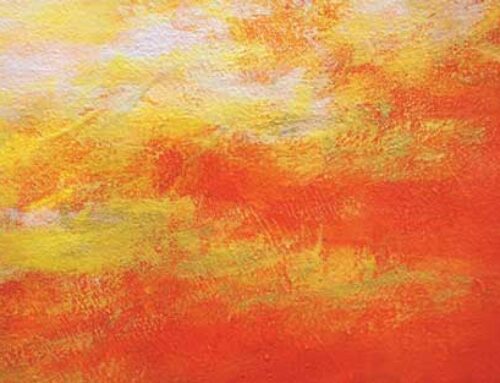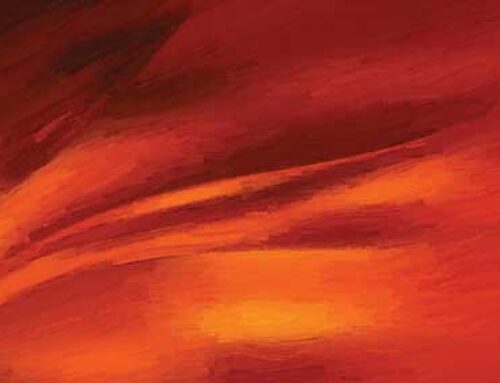by Assad Meymandi, MD, PhD, DLFAPA
Dr. Meymandi is in private practice as a psychiatrist and neurologist and serves as an adjunct professor of psychiatry at the University of North Carolina at Chapel Hill. He is a noted physician, editor, and philanthropist who frequently speaks and writes on diverse topics that relate to his interests in medicine, the arts, religion, and philanthropy. He lives in Raleigh with his wife Emily.
Psychiatry (Edgemont) 2010;7(7):47–49
To understand Hazrat Inayat Khan, his branch of Sufism, and his music, it is appropriate to attempt to describe Sufism. Popular references define Sufism as a branch of Islam, which suggests that Sufism emerged after 620 AD, the birth of Islam. I submit that this is an incorrect assumption. Sufism as a way of life was there long before Islam. There are theologians, like Yale Jaroslav Pelikan, who suggest Sufism may be the essence of ancient Greek philosophy and Christianity. Sufism is a remarkable combination of devotion, discipline, and acute awareness (zekr), mixed with compassion, altruism, forgiveness, and deference. Many scholars of antiquity believe that Socrates, Zarathustra, even Moses, the presumed author of Pentateuch, and Jesus Christ himself—the new Moses and the new law giver—carried and preached the essence of Sufism. In Sufism, pharisaic exactitude, dotting every “i” and crossing every “t,” are discouraged. The ultimate goal of Sufism is love—not erotic love, not philia love—but the transcendental and ethereal closeness to God. The closest definition of that brand of love, in Greek “Agape,” the love of Yahweh, the love of God, the love of Ahura Mazda, is defined by total tolerance and acceptance of one’s self and one’s fellow human. This is the kind of love the Lord has for us as God’s children and that we should have for one another. With these basic principles, one may understand why many scholars and theologians link Sufism to the pre-Islamic era.
Because Sufis are individualists, there are many sects of Sufis. While they perpetuate the same basic philosophy of love, tolerance, and closeness to God, they offer alternative roads. A Sufi leader, Shah Nematollah Vali (1330–1431), born in Syria, travelled extensively throughout the world and finally chose to spend the latter part of his life in my hometown, Kerman, Iran. He is buried in Mahan, 10 miles southeast of Kerman, under a beautiful blue dome of mosaic tiles in an oasis of ancient tall trees and running brooks. His teachings have one of the largest followings throughout the world. He taught his followers to love God and be loved by God. “The being of the lover and beloved are the same, for where is love without a lover and beloved to be found?”
Another Sufi of great influence is Hazrat (means lofty and honorable) Inayat (means generosity) Khan (means lofty). Born 1882, died 1927, an Indian Muslim Sufi who was trained to be a scholar, a pharisaic teacher of rhetoric; but he became attracted to Sufi teachings and fell in love with music. He established the “Sufi Order of the West” with the lofty goal of spreading the message of Sufi way of life to London and the West. He was a contemporary of Khalil Gibran (1883–1931), the Lebanese mystic, poet, and artist. They had a close relationship. There is a passage in Gibran’s book Prophet that starts with this line: “To know the pain of too much tenderness…” thought to be written for and sent to Inayat Khan. In his short life, Inayat Khan wrote 15 books on various topics of interest including psychology, sociology, sex, marriage, and yes, music.
Inayat Khan was a master vina player. Vina is a string instrument of India that has a long, fretted fingerboard with resonating gourds at each end. It is a technically complicated instrument and takes years to master. Ianyat Kahn said he would get closer to God when his fingers were striking the strings and his soul soaring the ether. He wrote extensively about “music being an instrument of divinity and a road map to God.” Inayat Khan called music the “Divine Art” while all other art forms are not so called. He inserted that we may certainly see God in all arts and all sciences but in music alone, we see God free from all forms and thoughts. He further posited that in every other art there is possibility of distraction and idolatry. Every thought, every word has a form. Sound alone is free from form. Music defies the tyranny of shape and form. It offers the listener complete freedom.
In an essay “Spiritual Development by the Aid of Music” from his book The Sufi Message of Hazrat Inayat Khan, Vol. II, Inayat Khan asserts that, “Music is a miniature of the harmony of the whole universe, for the harmony of the universe is life itself, and humans, being a miniature of the universe, show harmonious and inharmonious chords in their pulsations, in the beat of their hearts, in their vibration, rhythm and tone. Their health or illness, their joy or discomfort, all show the music or lack of music in their life.” He continues his explanation of what music teaches us.
Music helps us to train ourselves in harmony, and it is this which is the magic or the secret behind music. When you hear music that you enjoy, it tunes you and puts you in harmony with life. Therefore we need music; we long for music. Many say that they do not care for music, but these have not heard music. If they really heard music, it would touch their souls, and then certainly they could not help loving it. If not, it would only mean that they had not heard music sufficiently, and had not made their heart calm and quiet in order to listen to it and to enjoy and appreciate it. Music develops that faculty by which one learns to appreciate all that is good and beautiful in the form of art and science, and in the form of music and poetry one can then appreciate every aspect of beauty.
What deprives us of all the beauty around us is this heaviness of body or heaviness of heart. We are pulled down to earth, and by that everything becomes limited; but when we shake off that heaviness and joy comes, we feel light. All good tendencies, such as gentleness and tolerance, forgiveness, love and appreciation, all these beautiful qualities come by being light—light in the mind, in the soul, and in the body. What is wonderful about music is that it helps us to concentrate or meditate independently of thought, and therefore music seems to be the bridge over the gulf between form and the formless. If there is anything intelligent, effective, and at the same time formless, it is music. Poetry suggests form, line and color suggest form, but music suggests no form. It creates that resonance that vibrates through the whole being, lifting the thought above the denseness of matter; it almost turns matter into spirit, into its original condition, through the harmony of vibrations touching every atom of one’s whole being. Beauty of line and color can go so far and no further; the joy of fragrance can go a little further; but music touches our innermost being and in that way produces new life, a life that gives exaltation to the whole being, raising it to that perfection in which lies the fulfillment of our life.
I once had the opportunity to chat with Zubin Mehta’s father, Mehli Mehta, in his Los Angles, California home. Maestro Mehli Mehta is the founder of Bombay (now Mumbai) Symphony. He is a famous composer, conductor, and performer on his own right. A man in his 90s, he is still active as a violinist and conductor. Maestro Mehli Mehta and I spoke of Hazrat Inayat’s Sufism and music. Just as many Americans, including me, believe that the mystic hand of God influenced the authorship of the United States Constitution, ensuring the divinity of the document, many Indians, Hindu and Muslim alike, believe and feel divinity within them when they listen to Inayat Khan’s vina.
Ironically, in his short 45-year lifespan of prolific writing, composing and performing, like Gioachino Rossini and many other music greats, Inayat Khan quit music in midlife. Here is his explanation: “I gave up my music because I had received from it all that I had to receive. To serve God one must sacrifice what is dearest to one; and so I sacrificed my music. I had composed songs; I sang and played the vina; and practicing this music I arrived at a stage where I touched the Music of the Spheres. Then every soul became for me a musical note, and all life became music. Inspired by it I spoke to the people, and those who were attracted by my words listened to them, instead of listening to my songs. Now, if I do anything, it is to tune souls instead of instruments; to harmonize people instead of notes. If there is anything in my philosophy, it is the law of harmony: that one must put oneself in harmony with oneself and with others. I have found in every word a certain musical value, a melody in every thought, harmony in every feeling; and I have tried to interpret the same thing, with clear and simple words, to those who used to listen to my music. I played the vina until my heart turned into this very instrument; then I offered this instrument to the divine Musician, the only musician existing. Since then I have become His flute; and when He chooses, He plays His music. The people give me credit for this music, which in reality is not due to me but to the Musician who plays on His own instrument.”
Final word: Music transcends religion, geography, ethnicity, locality, and people. Music is the one art form that takes us closest to the ether of tomorrow. Enjoy.






